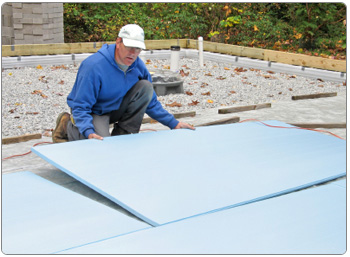The financial crisis has hit Europe since 2008 following the consequences of the subprime crisis in the United States. The countries of the European Union have become aware of their significant debt and have decided to reduce their public deficit (i.e., the gap between public revenues and public spending). In summary, the member states of the union must save money. What does a mortgage refinancing cost?
It has not escaped anyone’s notice that this situation has led to an increase in tax pressure in Europe and a significant reduction in public spending. In short, household purchasing power has been continuously under attack from governments for months (for example, the French Government hopes to raise new taxes during the 2013 fiscal year for no less than 20 billion euros).
In this context of drastic reduction in household purchasing power, it may be interesting to consider refinancing your mortgage with the reasonable aim of reducing the monthly expenses that weigh on the household.
Can you refinance your mortgage?
The answer to this question is certainly positive. You always have the option to refinance your mortgage.
When is it beneficial to refinance your mortgage?
Essentially in 4 specific situations:
- When you have significant work to do in your house and need new financing. The most natural solution will be to add a supplement to your original mortgage and thus refinance your original mortgage to have only one that encompasses the initial purchase cost of the house and the cost of the new work.
- If you notice a significant decrease in interest rates in the market and you believe that your initial interest rate is too high.
- If you took out a mortgage with a variable initial interest rate and the rates on the mortgage market are falling.
- If you have multiple loans or installment plans in progress and you find that the total monthly payments are too high. In this case, it will probably be wise to proceed with a credit consolidation or centralization of your loans to have only one monthly payment. In this case, your house is used as collateral for a mortgage. The repayment periods will be extended, which will result in a reduction of the total monthly repayment burden.
What is the cost of refinancing a mortgage?
The cost of refinancing a mortgage depends on the amount of the new mortgage loan.
There will be a cost related to:
- The release of the original mortgage registration that burdens the original mortgage;
- The new application fees for the constitution of a new mortgage;
- The new fees for the registration of the new mortgage.
How do I know if it is in my interest to refinance my mortgage?
This question requires a thorough analysis by a professional who will study your file on a case-by-case basis. In a schematic way, we can say that when you can lower your monthly expenses through a mortgage refinancing, you should consider the opportunity to proceed with it.
At Crédit Populaire Européen, our specialized brokers are at your disposal to examine this question with you free of charge.

 The normal mortgage and the
The normal mortgage and the 



